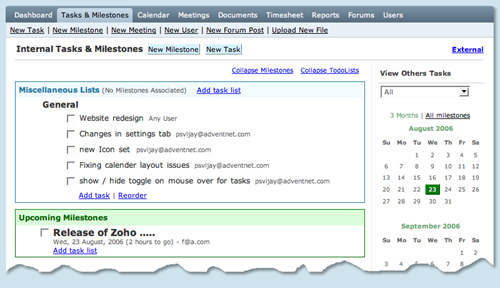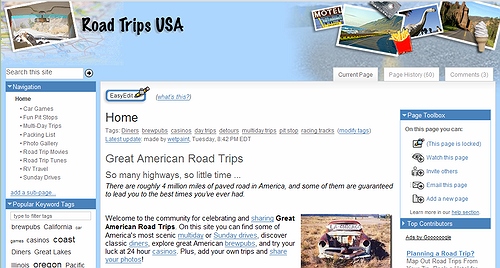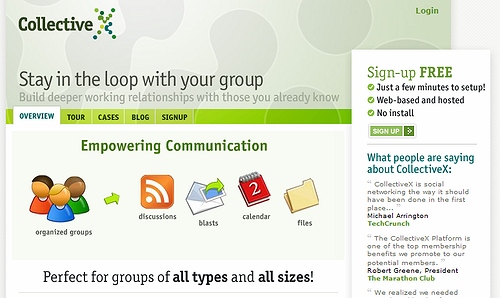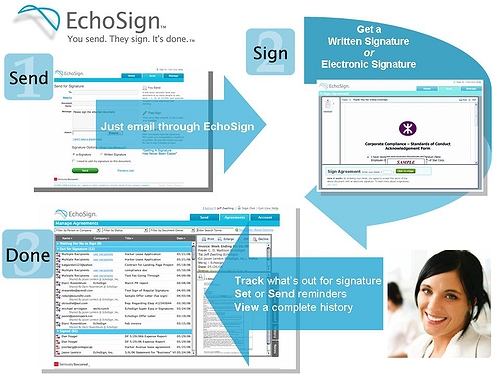Tags: astronomy, pluto, wikipedia, enterprise+2.0

Vista Startup Sound – Blind Ignorance
(Updated)
Vista beta testers mad about forced startup sound – reported Robert Scoble yesterday. What several testers observed was that the Windows startup sign can not be turned off. Naive me, this is how I tried to calm down the “mad users” in a comment:
“Oh, for God’s sake it can’t possibly be by design… It’s a beta, and with Microsoft’s so-called stable products being so buggy, what do you expect? Just be happy it doesn’t force an automatic reboot every 30 minutes
“
 Yeah, right. Today the story continues, as Robert interviewed “Steve Ball, group program manager for the Windows Audio Video Excellence team (basically, the team that builds the stuff that plays audio and video in Windows).” Wow, thank God they have an entire team for that! But it gets better: they hired famous guitarist Robert Fripp for the job. Geez, just give me a machine that boots fast and doesn’t crash, I’ll get my music on my own!
Yeah, right. Today the story continues, as Robert interviewed “Steve Ball, group program manager for the Windows Audio Video Excellence team (basically, the team that builds the stuff that plays audio and video in Windows).” Wow, thank God they have an entire team for that! But it gets better: they hired famous guitarist Robert Fripp for the job. Geez, just give me a machine that boots fast and doesn’t crash, I’ll get my music on my own! 
And here’s the best part from Steve Ball:
“This will be a non-customizable sound, and that’s been part of the plan for Windows Vista for many months, he said.
However, the plan might change and Steve Ball is reading all the feedback, both on blogs, and in the newsgroups for beta testers, and his team is considering all of this stuff and still has not made final decisions (although they’ve spent a lot of time already arguing this stuff out and are heading down a path of making this a non-customizable sound that can’t be turned off, just like the Xbox has today).“Why the hell would you want to do this in the first place?” he told me is a common question.”
Wow. If he really can’t think of a reason, how about this: has it ever occurred to anyone that some of us Microsoft-slaves might just wake up in the wee hours and want to work (i.e. turn on the computer) without waking up the family?
I am fuming… this is yet another case of product-focused thinking ignoring users. 
Update (8/24): Here’s another scenario, from a comment to Scoble’s blog:
“I really hope this isn’t true. If it is, we’ll never deploy Windows Vista in a clinical environment or care setting. We currently have Windows 2000 PCs running in very sensitive care environments that need constant reboots — if the system is forcing the startup sound to play, regardless of other settings, that could be very disruptive to a care environment without us have to take unnecessary steps to mitigate the noise. Microsoft, _think_ about your users not yourselves!”
Another commenter sums it up perfectly:
“Microsoft is still doing what Microsoft does best, telling their customers that Microsoft owns their computer and not them.”
Better yet, just watch this video. ![]()
Also read Silence is Golden by Michael Parekh.
Update (9/23): Microsoft listens, after all, says Scoble. They are making the sound optional.
Tags: Windows, Windows+Vista, Vista+Beta, Windows+Sound, Vista+Sound, Vista+Startup, Microsoft

Dell: Don’t Leave Home *With* It…
…At least not if you want to fly.
After the well-publicized Dell-explosions and a recall of over 4 million batteries (made by Sony) Qantas Airlines issued new rules: travelers are allowed to bring their Dells on board, however, they can only use them if they first remove the battery, then plug it into an outlet – which is only available on business- and first class.
Security at some airports apparently goes a bit further:
“One passenger who flew out of Canberra on a Qantas flight on Monday reported that he and his colleagues had encountered security personnel removing the batteries from all Dell computers, and taping up the contact points on the battery ” – reports the Sydney Morning Herald.
I guess from now on there are three classes of notebooks: the Mac, the Win and the Dell.
Also read Engadget, Gizmodo and The Unofficial Apple Weblog.
Update (8/24): As Jim points out in a comment below, after Dell now Apple issued a battery-recall, too. I suspect the story is far from being over, a lot of other manufacturers use Sony’s batteries.
Update (9/6): Korean Air joined the ban, in fact they go a step further: passengers have to remove the batteries and pack them in their check-in luggage.
Tags: dell, laptops, notebooks, dell+recall, dell+batteries, dell+explosions, airlines, air+safety, airline+safety, qantas, apple, apple recall, apple batteries, sony recall, sony batteries

Watch Out for Zoho
I declared the Zoho Suite complete exactly 2 months ago, when they released Zoho Show. However, there is always complete … and even more complete 🙂 And the Zoho guys are getting cute: they want you to guess what’s next.

Tags: Zoho, Zoho+Suite, Zoho+Project, +Office+2.0, WebOffice, Online+Calendars, Email, Collaboration, Project+Planning, Project+Management+, Basecamp

Disk Drive: 1956-2006. R.I.P.
Alright, I’m the first to admit the title is exaggerating, the disk drive still has a long life- but the replacement is here.
 In an ironic coincidence on the very day Mike Parekh and Will Price are celebrating the disk drive’s 50th birthday (the first IBM unit weighed over 1 tons and held 5MB), CNet reports Samsung’s launch of its diskless portables.
In an ironic coincidence on the very day Mike Parekh and Will Price are celebrating the disk drive’s 50th birthday (the first IBM unit weighed over 1 tons and held 5MB), CNet reports Samsung’s launch of its diskless portables.
There are absolutely no moving parts in these beauties. “Samsung claims the new model can boot up 25 to 50 per cent faster than conventional laptops as it has a read speed of 53MB per second and a write speed of 28MB per second.”
Faster, but smaller, the current flash storage size is 32G – perfectly enough for an Office 2.0 workhorse. Just like the computer commenters to my “Safer Office” post dreamed of.
Using web-based applications like the Zoho Suite, Flickr, Zooomr, why would I need more storage?
Of course for the foreseeable future we still need larger and larger disks – but let the guys at Omnidrive, box.net, Mozy..etc deal with them. After all, there are people holding up the “Cloud” ![]()
Update (9/25): Check out Engadget on the Samsung Q1-SSD

Tags: Storage, Hard+disk, harddisk, SSD, flash+memory, diskless, Samsung, Office+2.0, WebOffice, Zoho, Zoho+Suite, Flickr, Zooomr, Omnidrive, box.net, Mozy

AOL Heads Roll: I Wish All My Predictions Came True This Fast
The AOL Clusterfuck (pardon my French, I couldn’t resist quoting Mike) became a significant milestone for my blog. All I did was browse around on a Sunday afternoon, when everybody else (i.e. sane people) was probably outdoors. I sensed something big, and as such, my piece, AOL Just Did the Unthinkable – Boycott AOL? was one of the first (the second, to be exact) to report the AOL fiasco.
It got on TechMeme, Reddit and a number of secondary aggregators – that lazy Sunday evening saw 3,5K visitors , and Monday about 11K. (That free bandwidth upgrade from BlogHarbor came just in time, thanks, John). I got quoted in mainstream publications, even in the #1 newsportal in Hungary, and received a voicemail from a WSJ journalist. The reader-invasion dropped since then, and settled at double what I had before. What can I say… it still was a cl*** (OK, I am not gonna repeat it), but hey, thank you, AOL.
As for the prediction, here’s a quote from my original piece:
“Update #1 (8/6): I’m going out on a limb here with this prediction: as they realize the magnitude of what they did (or if they don’t, due to the PR nightmare) AOL will apologize, the fingerpointing starts and heads will roll. They will remove the download link. Not before anyone who wanted the data will have obtained it though.”
Let’s see:
- Apology happened the day after
- Download link was removed the same day, within hours
- Heads are rolling now
Now that its’ proven I have the magic power, I need to be careful what I predict next: something to do with my career, financial status, marital status… ? Oh, well, predicting is a lot of work 🙂
Update (8/21): Enterprise 2.0 is deleted from Wikipedia, but Clusterfuck has an entry. What the f.. cluster:-)
Tags: AOL, DOJ, Google, boycott, data+mining, privacy, search+data, search+logs, clusterfuck, techcrunch

Nokia Can’t Keep Up with Demand for $5K+ Vertu Phones
 “The luxury unit of the world’s top mobile handset maker Nokia, Vertu, has seen strong demand this year and is struggling to increase production to keep up, a senior official said on Thursday.
“The luxury unit of the world’s top mobile handset maker Nokia, Vertu, has seen strong demand this year and is struggling to increase production to keep up, a senior official said on Thursday.
Vertu targets wealthy customers by producing very costly mobile phones made from platinum, gold and diamonds.
“At the moment we cannot meet demand. Sales are more than doubling this year. We hope that pace will continue also next year,” Chris Harris, Vertu’s marketing director, told Reuters on the sidelines of a news conference.” (Reuters via WeirdTechNewsHub)
Geez, Jeff, you’ve got the wrong one! 🙂
Tags: nokia, vertu, cellphone, mobile+phone, handsets, gadgets, luxury, cellular

Enterprise Software is (Still) Not Dead
Recently I joined my fellow Irregulars (a work-group of bloggers, analysts, journalists who write about Enterprise Software) in jointly publishing an article on Sandhill: Software’s Sky is Not Falling.
All articles get edited, and that’s even more so with multi-author ones; therefore I thought I would post my original, pre-edit piece below.
With almost predictable regularity we’re seeing software obituaries popping up just about every month: the only variation in the theme is what’s being declared dead: sometimes it’s Enterprise Software, sometimes it’s email. Just like I’ve already stated I did not believe email was dead, I strongly disagree it’s time to mourn Enterprise Software.
Since my fellow Irregulars mostly addressed the Open Source angle in Guy Smith’s post, Is Enterprise Software Doomed? I’ll reflect on the SaaS part of his piece.
“SaaS is the bastard child of the traditional proprietary software vendor and the Open Source marketing paradigm.”
SaaS is NOT an offspring of Open Source, although they often get lumped together, especially in buzzword-heavy startup pitches; however, they are quite different animals.
With a great deal of simplification the single most important difference is in the deployment model, SaaS by definition being on-demand, while most Open Source products are on-premise, traditionally installed systems.
Guy sees the natural evolution of Open Source Enterprise Software vendors “retrofitting” their products to SaaS offerings, but in reality most SaaS offerings are commercial, and most Open Source is on-premise, these two being on decidedly different paths.
The common trait, as Guy correctly points out is the change in the sales & marketing process: PR, buzz, online sales cycle process management, free trials, inbound sales, customer-initiated pull process vs. sales push. Yet Guy sees this as a necessity forced by economics: “the reduction in unit revenue will force all Open Source (including Dual Source) vendors to change their marketing and sales cycle “ when in reality these are actively pursued changes that both Open Source and SaaS companies embrace. Without denying the importance of the underlying technology, the most important change SaaS facilitates is this very business model change, which opens up entirely new, unpenetrated business segments for Enterprise Software: small and medium businesses (not just the M but the S in SMB). In fact customer size is another differentiation factor, at least for now, SaaS penetrating the SMB segment, while Open Source is ideal for mid-size companies, that actually have the in-house IT-expertise to play around with OS.
So is it as simple as:
- small business = SaaS
- midsize = Open Source
- large company = traditional software?
Not really, that would be oversimplification. But while it’s easy to declare that for small businesses without their own IT resources there is no better option than SaaS, there is no clear “winner” for large corporations. There shouldn’t be. This is not religion; it should be business decisions that these organizations have to make individually. Analysts fighting the SaaS vs. On-premise war often forget that software exist to resolve business problems. As Charles so eloquently points out, it’s the complexity of these business processes, the need for customization, the number of user seats..etc that matters, and as we move up on this scale, increasingly “traditional” Enterprise Software is the answer. I happen to believe that eventually SaaS will grow up to meet those requirements, but am not going to guess how many years it will take. In the meantime the SaaS-fans (admittedly I am one) can claim that SaaS is the future – but that does not mean Enterprise Software is dead.
If I were to launch a software startup, it would be SaaS. Dave Duffield and his PeopleSoft team have the luxury of starting from scratch launching Workday, a pure SaaS company – since they were forced to walk from PeopleSoft and it’s customer base. But SAP and Oracle, (btw, Guy, since when do we determine market leadership by the amount spent on acquisitions?) together “own” the large corporate space; how could they expect their customers to throw away their investment in traditional software?
On-demand “purists” (the religious types) criticize SAP for their half-hearted hybrid approach to SaaS – but why would they do anything else? After all, SaaS is still only 10% of all enterprise software sold. Even if we believe “the future is SaaS” (which is of course unproven, but I happen to believe in it), there is a lot of mileage left in the “old” Enterprise model, and market leaders like SAP have certainly no reason to turn their backs to their huge and profitable customer base.
Here are the other “Irregulars” un-edited contributions:
- Niel Robertson
- Mark Crofton
- Vinnie Mirchandani
- Dan Farber
- Dennis Howlett
- Sadagopan
- Jason Wood
- Jeff Nolan
- David Terrar
Tags: enterprise+sofware, irregulars, mysql, on-demand, open+source, oracle, os, saas, sandhill, sap, software+marketing, software+sales, sugarcrm, smb, sme, small+business

Guess the eBay Bid and You May Win the Very Last TechCrunch Party Ticket
The TechCrunch party at August Capital will likely be the most lavish one – just look at the impressive list of party sponsors (see logos at the bottom). There are 760 names on the attendance list, and yours truly holds the last position on the wiki – hey, I am a rock-solid Z-lister forever:-)
Mike Arrington put up the last two tickets for bidding on eBay, and he will donate all proceeds to the Entrepreneurs Foundation, a Bay Area non-profit organization.
And now the big news: there may potentially be one more ticket to win – right here. How high do you think bidding will go? Fill out the form below, and you can be the winner. (I’ve just realized that the script may not come through in a feed, so please click back to my post to access the form). The guess closest to winning bid amount will be awarded by:
- A drink and photo with Mike Arrington if you are already on the attendee list (hey, there may be a kiss, too, but I can’t commit Mike to that
 )
) - The very last ticket, if you are not yet on the list.
Note: I will be closing the poll at 10am on the day of the party, The eBay bid will close at 4:15pm. Winner will be published and notified by email as soon as payment is verified. (i.e. the bid has to be real). Update: The poll is now closed. The winner of the free
ticket is David Gobaud from Stanford, who guessed $537, and the winning
eBay bid was $501. Congrat’s and see you there! ![]()
Proof that this is for real:

Tags: Charity, Entrepreneurs Foundation, TechCrunch, TechCrunch Party, eBay, zoho, zoho creator, techcrunch7











Recent Comments